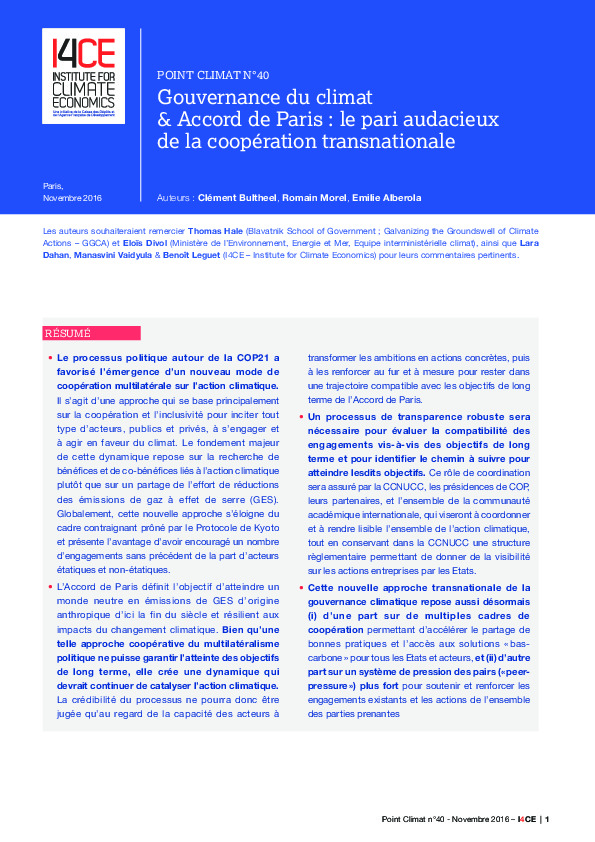Climate governance & the Paris Agreement: the bold gamble of transnational cooperation
- The political process introduced by COP21 has enabled a new avenue for multilateral cooperation on climate action. This new process focuses largely on cooperation and inclusivity to encourage all actors, public and private, to commit and act for the climate. In contrast to simply sharing the burden of emissions reduction effort, this dynamic encourages actors to explore and capitalize on benefits and co-benefits of climate action. Overall, this new approach moves away from the constrained climate framework advocated by the Kyoto Protocol, and as a result has encouraged an unprecedented level of climate commitment from both States and non-state actors.
- A stringent transparency process will be necessary to assess the compatibility of all commitments with long-term goals as well as to identify potential avenues to achieve those objectives. The role to coordinate and communicate on climate actions will be performed by the UNFCCC, the COP Presidencies and their partners as well as the wider international academic community. Meanwhile, the UNFCCC will also maintain a regulatory framework that provides visibility on the actions undertaken by Parties.
- This new transnational approach of climate governance also relies on (i) multiple cooperative frameworks to accelerate sharing of best practices and afford access to low-carbon solutions for all Parties and actors, and (ii) a stronger “peer-pressure” system to maintain and enhance existing commitments and actions from all stakeholders
